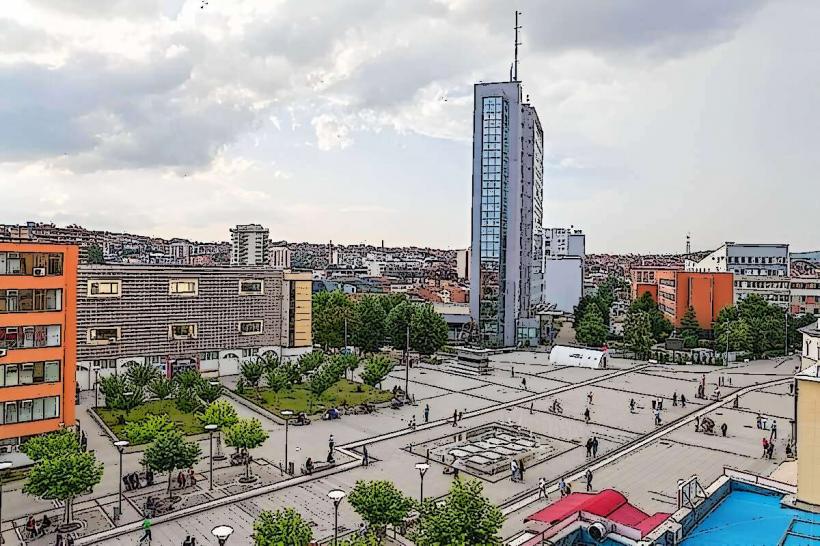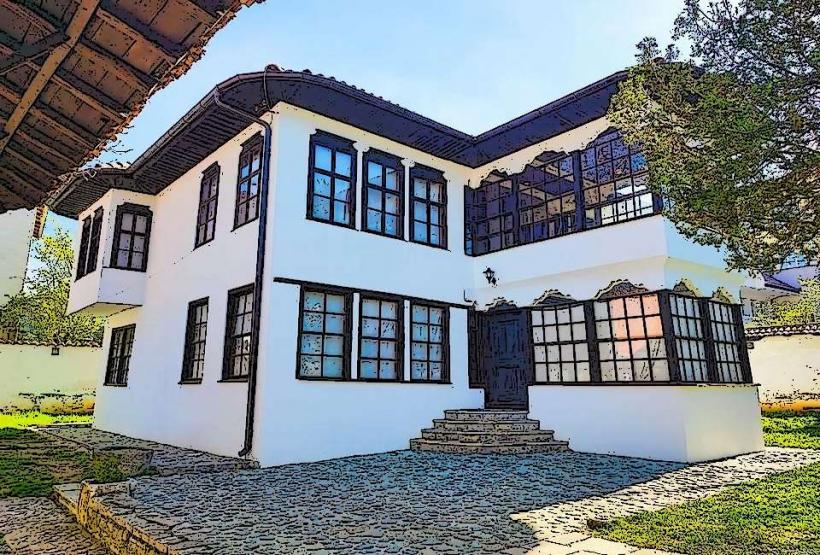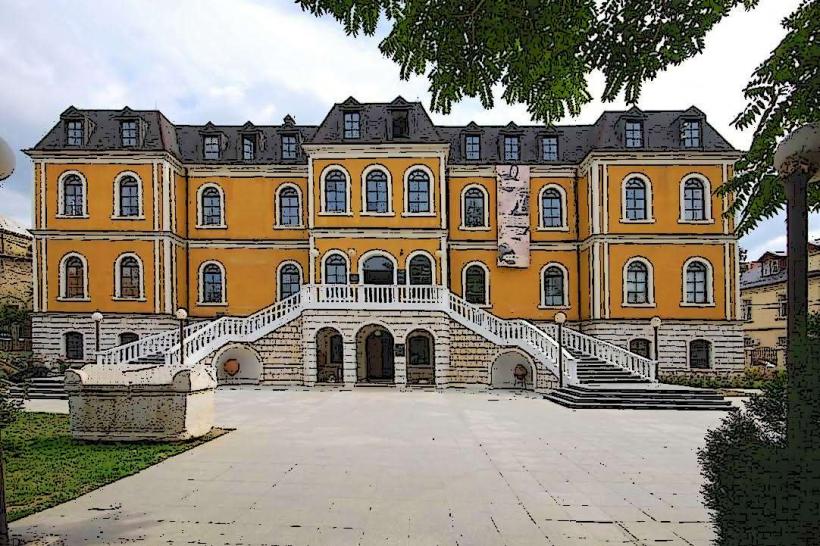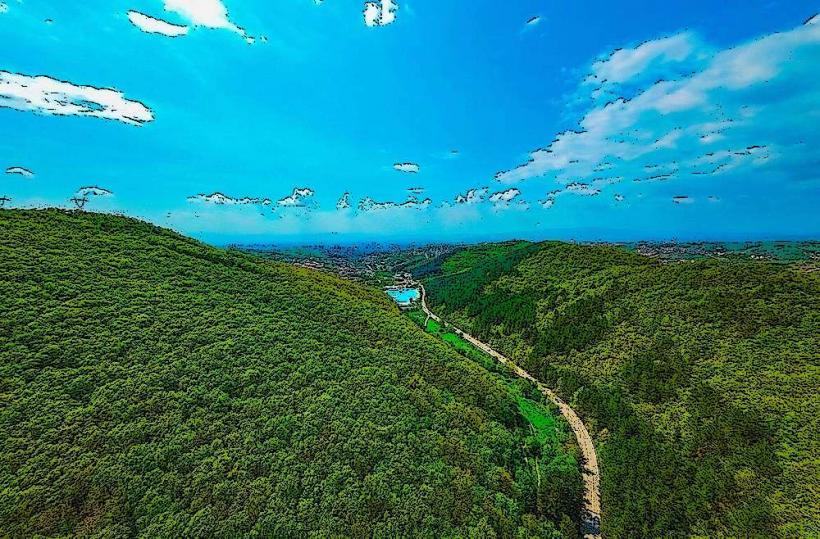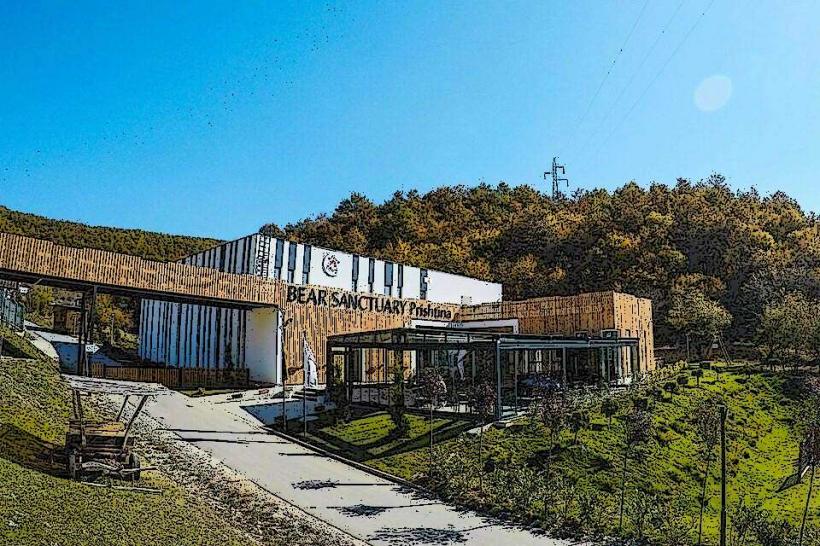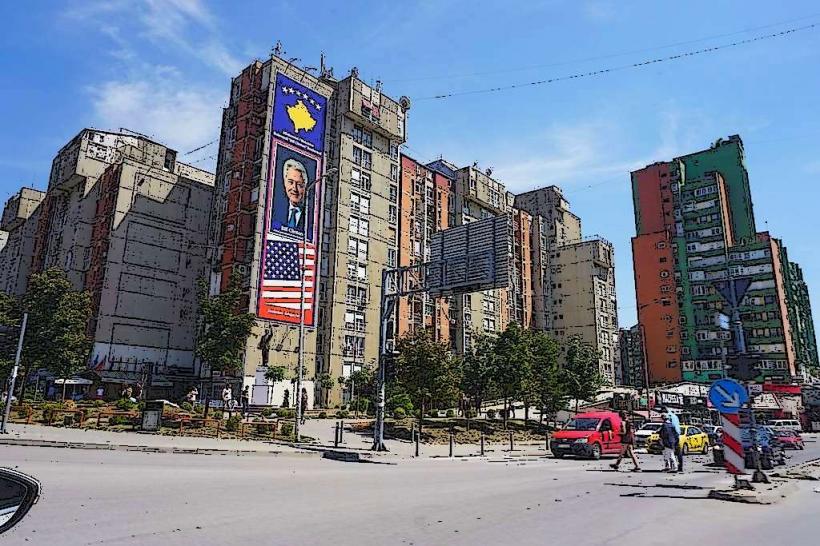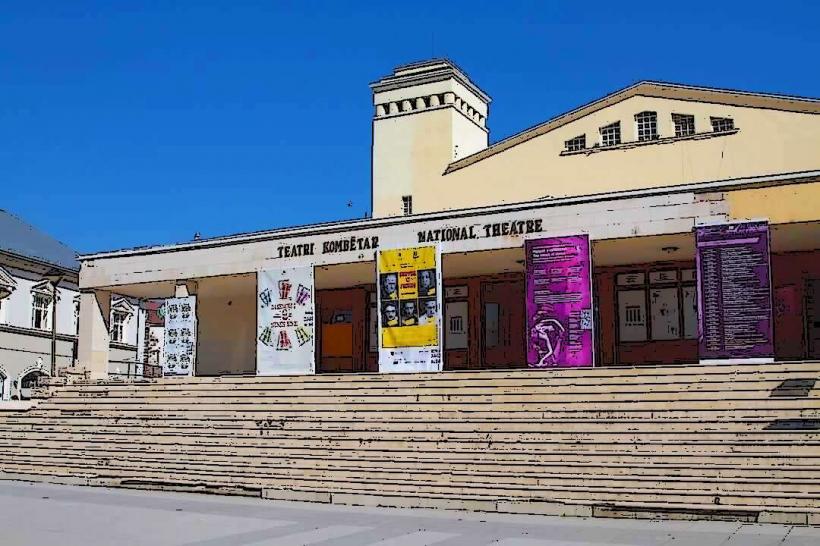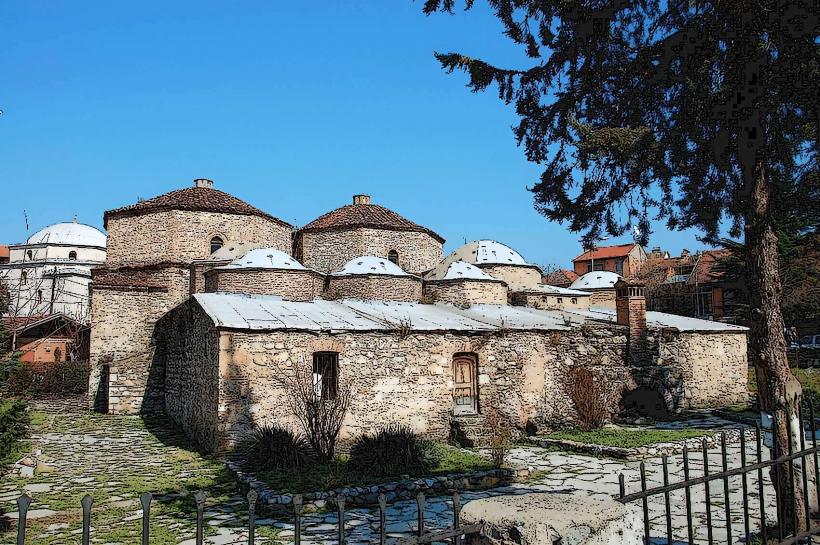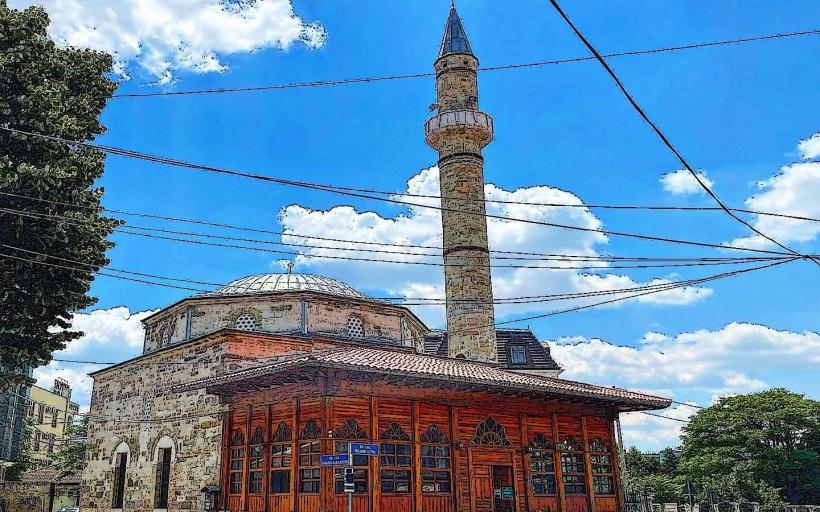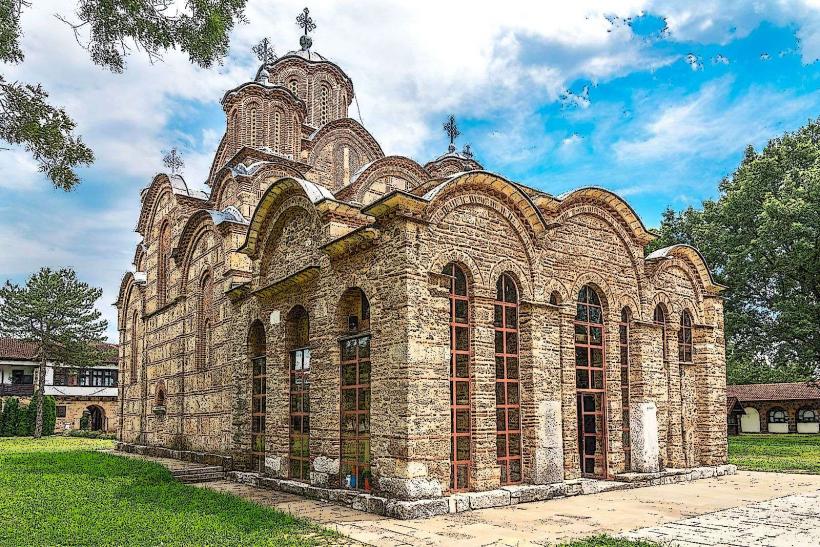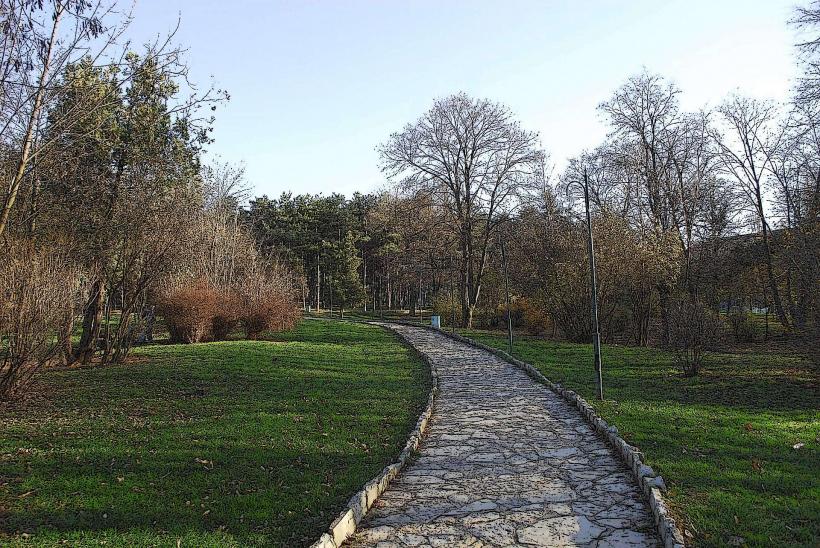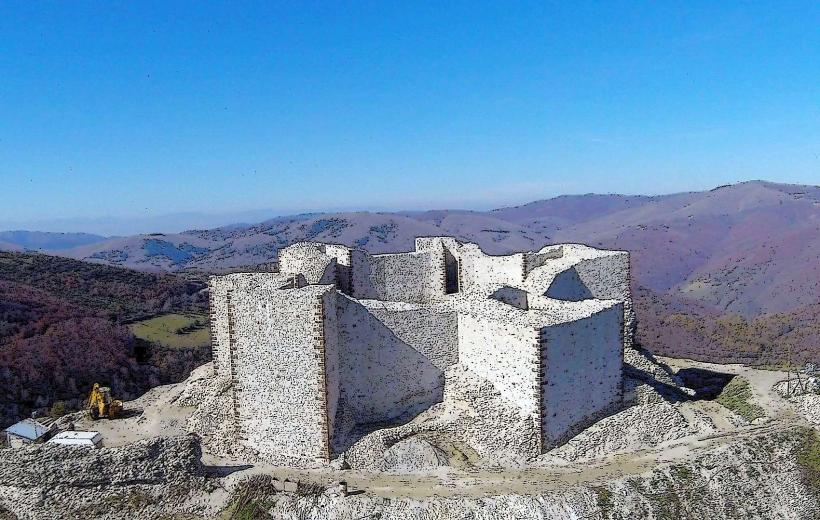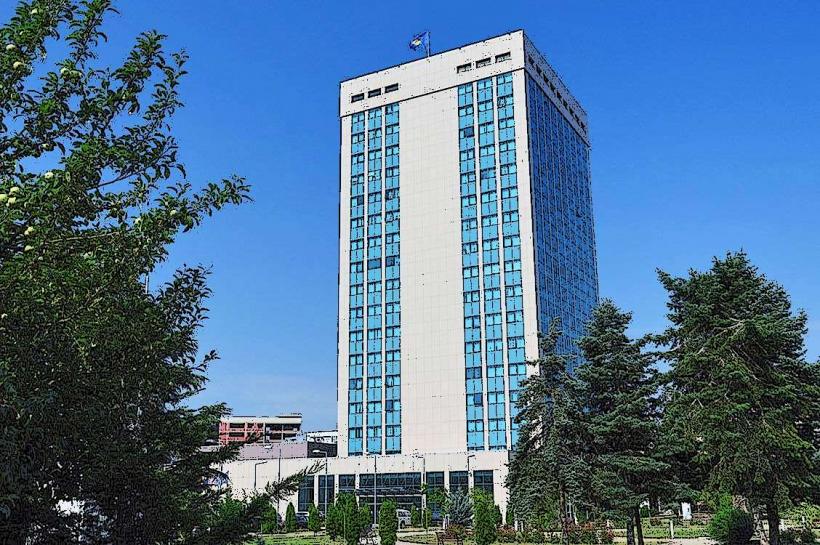Information
Landmark: Imperial Mosque (Xhamia e Madhe)City: Pristina
Country: Kosovo
Continent: Europe
Imperial Mosque (Xhamia e Madhe), Pristina, Kosovo, Europe
The Imperial Mosque, also known as the Sultan Mehmed Fatih Mosque or Xhamia e Madhe, is a 15th-century Ottoman religious structure located in the old town district of Pristina, Kosovo. It is the largest and most significant mosque in the capital, designated as a monument of exceptional cultural importance.
Visual Characteristics
The mosque is a classic single-domed structure built of local sandstone blocks. The central dome has a diameter of 13.5 meters and is supported by four large arches. A slender stone minaret, which was reconstructed following an earthquake, stands at the southwest corner. The entrance features a triple-domed portico (porch) supported by four marble columns with ornate capitals. Inside, the walls are decorated with floral motifs and geometric patterns dating from the 18th and 19th-century renovations.
Location & Access Logistics
The mosque is situated at the intersection of ul. "Ibrahim Lutfiu" and ul. "Ilir Konushevci" in the historic core. It is a 10-minute walk from Mother Teresa Square. Public bus lines 1 and 3 stop at the "Old Municipality" station nearby. Vehicle parking is prohibited in the immediate vicinity due to narrow historical streets; visitors are advised to use the public lots located near the Assembly of Kosovo building, approximately 400 meters South.
Historical & Ecological Origin
Commissioned by Sultan Mehmed II (the Conqueror) in 1461, the mosque was built during the peak of Ottoman expansion into the Balkans. Its architectural style follows the "Brusa" or early Istanbul school. During the Austro-Turkish War in the late 17th century, the mosque was briefly converted into a Catholic church and served as a burial site for the Austrian General Piccolomini before being restored to Islamic use.
Key Highlights & Activities
Visitors can observe the original stone carvings of the mihrab (prayer niche) and the wooden minbar (pulpit). Outside of prayer times, the mosque is open for architectural tours. The surrounding courtyard contains a traditional fountain (shadirvan) used for ritual ablution and several historic gravestones with Ottoman calligraphic inscriptions.
Infrastructure & Amenities
Public restrooms and ablution facilities are located in the basement level of the courtyard. The area is covered by 5G cellular signals from all local providers. There is no on-site museum or cafe, but the Old Bazaar district directly adjacent to the site offers numerous traditional tea houses and bakeries within a 50-meter radius.
Best Time to Visit
The best time for photography is during the early morning hours (08:00–10:00) to capture the sunlight on the eastern facade and portico. Visitors should avoid visiting during the five daily prayer times, particularly the Friday noon prayer (Jumu'ah), when the mosque is at maximum capacity and closed to tourists. Respectful attire (covering shoulders and knees) is required for entry.
Facts & Legends
A verified historical oddity is that the mosque's dome was considered one of the largest in the region at the time of its construction, representing a technical feat for 15th-century masonry. Local legend suggests that the mosque was built using a special mortar mixed with egg whites to ensure the structural integrity of the massive dome against seismic activity.
Nearby Landmarks
Pristina Clock Tower (Sahat Kulla): 0.1km South
The Great Hammam: 0.05km West
National Museum of Kosovo: 0.2km South
Ethnological Museum (Emin Gjiku): 0.2km North
Carshia Mosque: 0.15km Southwest


